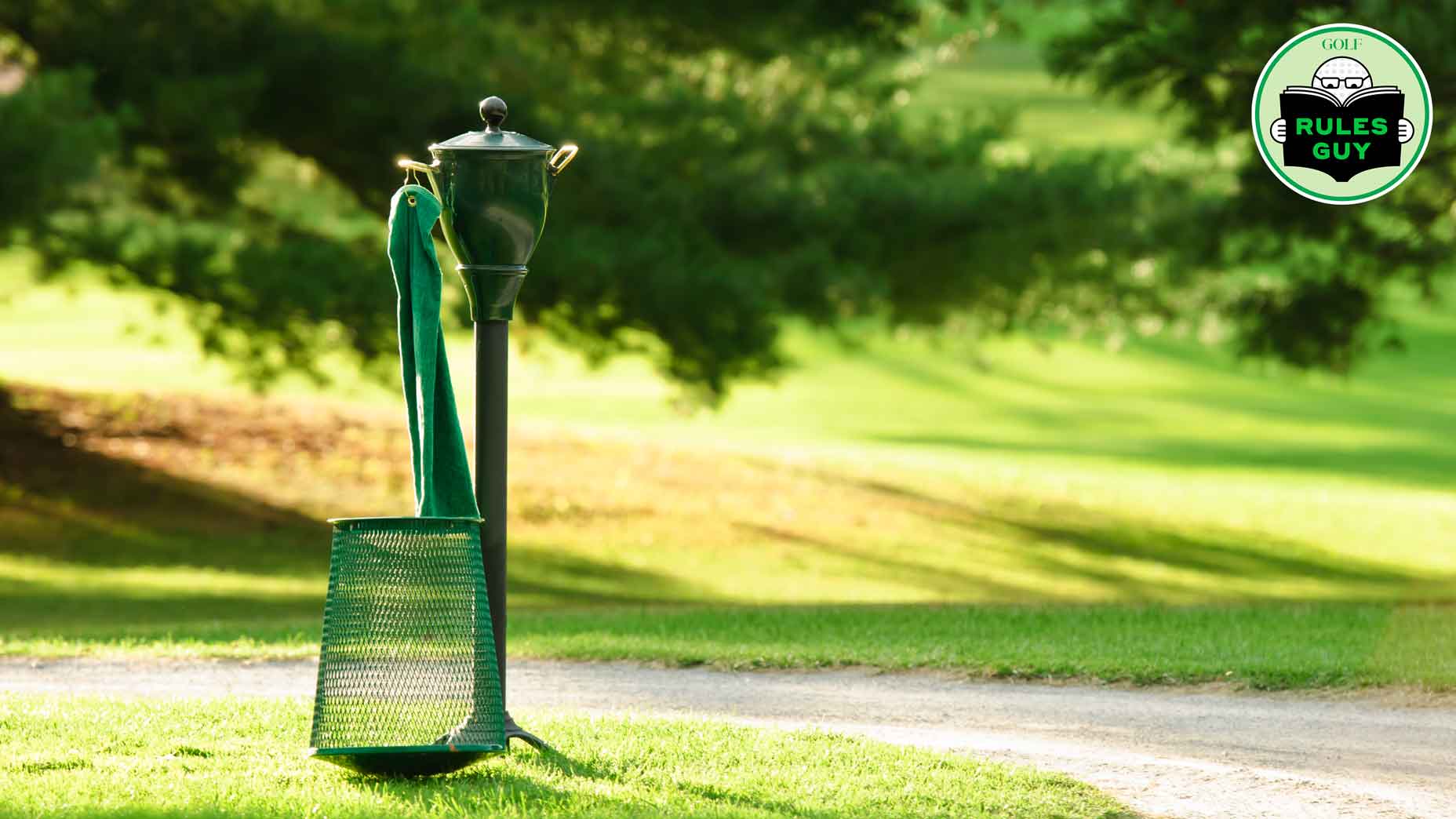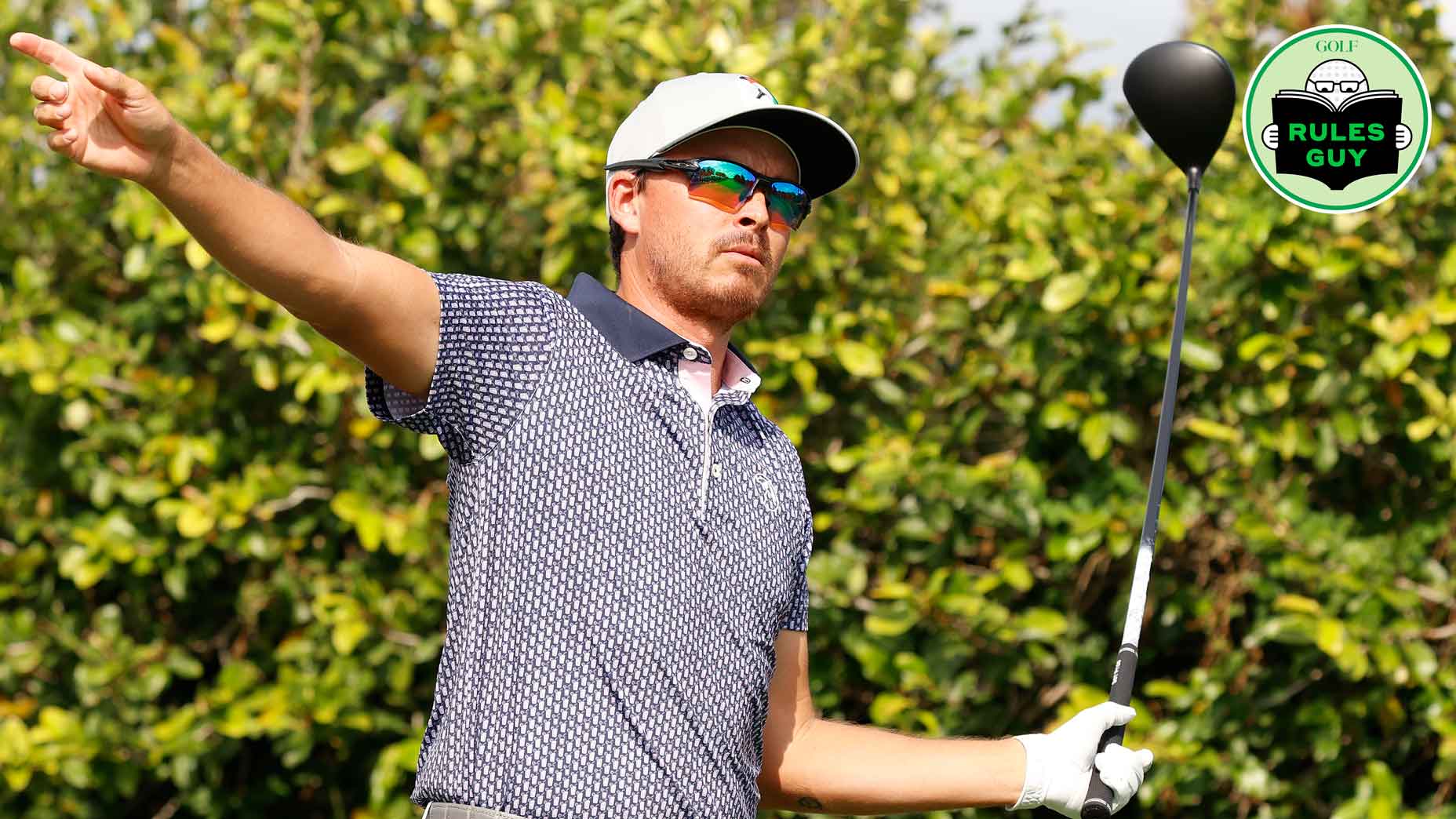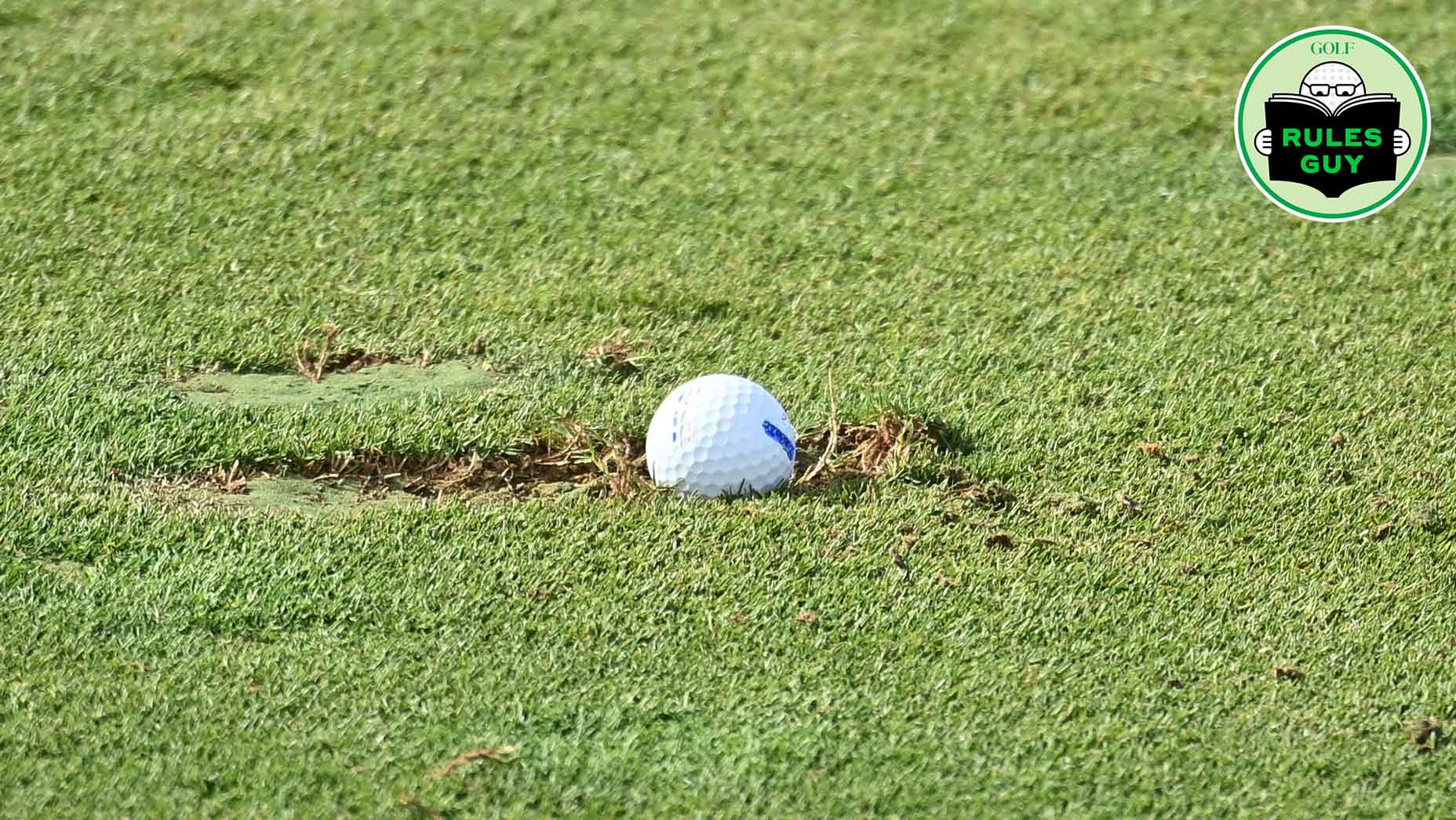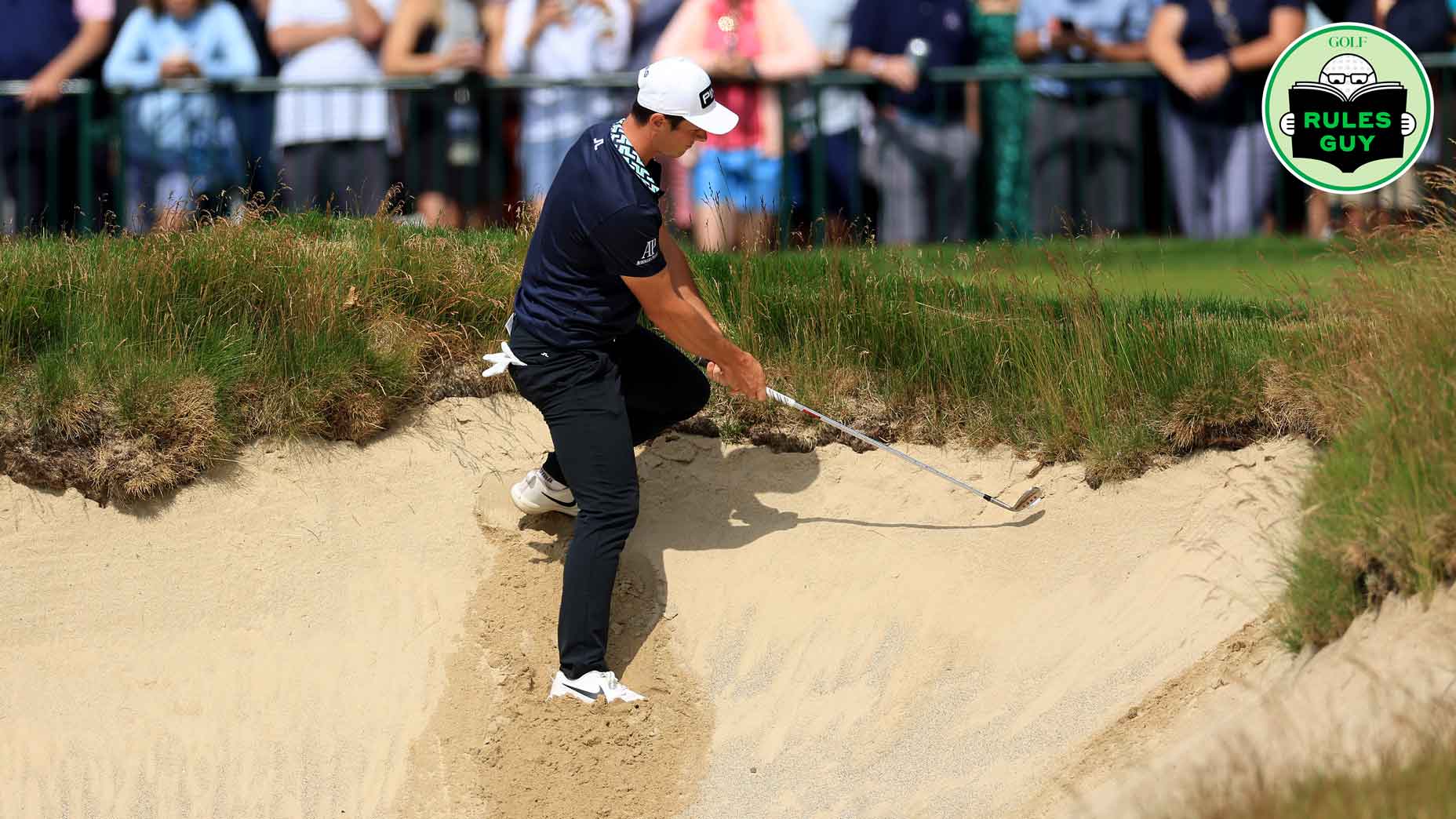In match play, I putted to within inches of the cup, and my opponent conceded the tap-in. As I went to pick up my ball, I saw his putt rolling toward me, but I only had time to get out of the way. His ball then banked off mine and into the hole for a half. Since my putt had been given, is my ball still technically in play? — ROY BURCHILL, SAN DIEGO, CALIF.
If a putt has been conceded, is the ball still present? The existential question at play is fascinating, and so are the relevant Rules. Had you let it be known you wanted to pick up the ball before your opponent played, but weren’t given the chance, your opponent would incur a loss-of-hole penalty. If not, there is nothing in the Rules that states a conceded putt must be moved before anyone else plays. In a way, you were lucky: Had you moved your ball at rest while another ball was in motion — an action that could have impacted play — you would have lost the hole, even though you were just trying to prevent the ricochet that in fact took place! You know what? Forget Rules Guy —you need Descartes. And I need an aspirin.
I play at a course infested with alligators. A fellow competitor approached a gator sunning itself and tapped it on the snout with a wedge. The animal rose up, bit down on the club and swam off into the hazard with it. This maniac argued that he could replace the club. While we all still laugh at the memory, we’re thankful that nobody was injured, and we’d like to know the correct ruling. — ARIS W. COX, VI, NEW ORLEANS, LA.
Was this loon wearing alligator shoes, too? First, please, everyone — avoid dangerous wildlife. Rules-wise, the verdict boils down to whether the gator was potentially impacting play. If it was close to Crocodile Dummy’s ball, the damage is considered to have occurred in the, ahem, normal course of play, and under Rule 4-3a the chomped club could be replaced in a timely fashion. If it wasn’t, and the player was merely being doltish, replacement is a no-go. And that’s no “crock.”
In a middle-school tournament, a player hit a shot into an adjacent backyard. There were several white OB stakes along the property line, and the scorecard indicated that playing from a neighboring property wasn’t permitted. Still, one white stake was apparently missing along the line, and the next white stake was around a bend. The player invoked Rule 3 and played two balls, designating his preference to count the ball hit from the owner’s property with no penalty. The coaches’ committee considered the situation and determined that, as staked, the backyard was in play, which as it turned out saved the player a stroke. Was the ruling correct? — RICHARD BOARD, VIENNA, W.V.
First, kudos to our budding Rules Kid for knowing to invoke Rule 3-3 when faced with an uncertain situation. The ruling was ipso facto correct, because it was made by the committee in charge of the competition, whose decisions are final. Does that mean it made the right decision? Not necessarily…but the buck ultimately stops with the committee.
Do local rules override USGA rules? I rinsed my tee shot on an island-green par 3 that, per a local rule, featured a designated drop area near the green to prevent a Tin Cup situation of endless shots into the water. When I went to use the drop zone, my opponent said that I was violating USGA rules. Is that possible? — CHURCH WARD, PENFIELD, N.Y.
In a word, no. A local rule cannot supercede a Rule of Golf. Furthermore, drop zones for water hazards are quite common, and committees in charge of a course or competition can and do adopt them. So if a drop zone is in effect, you can use it — drop your ball, drop some Rules knowledge, and then drop the mic, as it were.
GOT A RULES QUESTION?
Of course you do! Whatever it may be, send yours to rulesguy@golf.com and the question may be answered in an upcoming issue of GOLF. Until then, play by the Rules!





